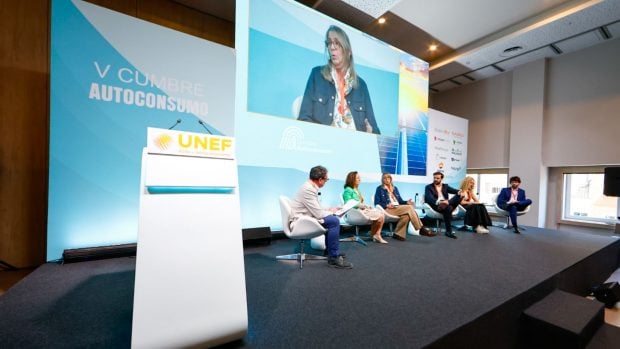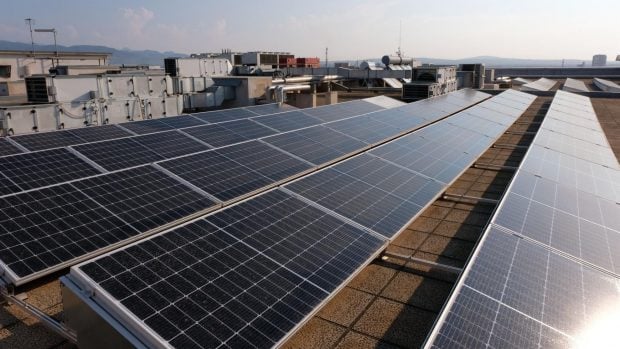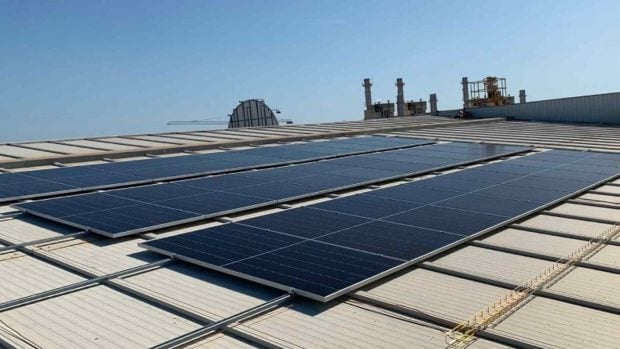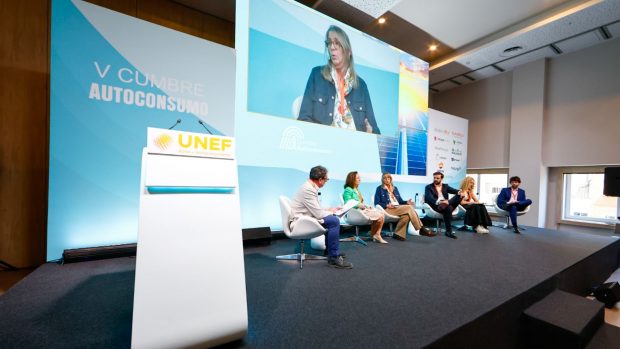Madrid has hosted the V Self -consumption Summitorganized by the Spanish photovoltaic union (UNEF) representing a key encounter for the present and future of the sector, at a time of turning marked by the deceleration in the installation rate of these solutions.
Before the climatic emergency and the high energy prices, the photovoltaic self -consumption has emerged as one of the best options that our industry and our homes have to save on the invoice, achieve greater energy independence and contribute to the decarbonization of our country.
Photovoltaic energy, adding self -consumption, is already the second source of energy to generation in Spain, behind wind and ahead of nuclear. In 2024, the photovoltaic covered 20% of the electric mix.
Alarms come on
On this path, consumers’ commitment to self -consumption continues to grow. Last year, more than 50,000 families installed self -consumption, with a total of 1,182 MW new in 2024. However, growth has been reduced significantly.
Rafael Benjumea, president of UNEF, has underlined the relevance of adopting urgent measures to resume the growth path and achieve the objectives established in the National Integrated Energy and Climate Plan (PNIEC).
«We have exceeded the 8 GW of self -consumption, but the 31% drop in new facilities in 2024 lights all alarms. We cannot miss the impulse achieved »has warned.


Fundamental role of self -consumption
The president of UNEF has shared the inauguration of the act with Miguel Rodrigo, general director of Idae, who stressed that self -consumption, despite the slowdown, grows well above the pre -crisis levels. Specifically, he said that «In 2024 a 61% more than in 2019 was installed“And he added that” self -consumption can allow us to advance faster in the task of guaranteeing energy equity. “
The V Self -consumption Summit has brought together more than 350 attendees todayamong which are professionals from the main companies in the sector and representatives of institutions such as Miteco, Idae, CNMC, Ree, and the Autonomous Communities.

 Solar panels in a building.
Solar panels in a building.
UNEF has also presented the Good fire safety practices manualnow available on its website, which gives the keys for these facilities to be carried out safely.
Among them, it addresses characteristics necessary for design, installation and maintenance to be adequateaffecting the importance of training and qualification of professionals and the use of adequate and quality materials and components.
Tangible achievements and urgent challenges
From the approval of Royal Decree 244/2019, Self -consumption has ceased to be a marginal alternative to become a usual option for homes, companies and administrations. However, the current growth rate is not enough to meet the aim of reaching 19 GW in 2030.
The sector has indicated various barriers that slow the development of self -consumption, from regulatory inconsistencies to administrative and economic obstacles. Special emphasis has been placed on the need to eliminate unjustified limits in processingsuch as the current 100 KW threshold for simplified processing, or the restriction in the distance between the generation and consumption point.


Proposals to reactivate self -consumption
During the different interventions, a battery of concrete proposals have been presented to give a new impulse to self -consumption in Spain, among which they stand out:
- Processing: Exempt from processing to facilities that injected less than 15KW, expand simplified processing up to 450 kW of access capacity and increase the distance allowed between generator and consumer to 5,000 meters.
- Promotion of collective self -consumption: Expedite procedures by means of the figure of the collective self -consumption manager, simplify the distribution agreements and eliminate requirements such as unnecessary additional counters.
- Economic and fiscal measures: Increase the variable term of the invoice to encourage savings, extend fiscal deductions due to energy efficiency or include reduced VAT for certain components of solar facilities, including batteries.
- Impulse to storage: Claim its key role in system flexibility and guarantee its integration, guarantee its integration into self -consumption regulations, as a generating and consumer agent.
- Guarantees and territorial equity: Ensure that distributors meet deadlines and that administrative exemptions are applied homogeneously throughout the country.
Energy communities and electrification: pillars of the future
The summit has also The role of energy communities as the new engine of the energy transition. UNEF has claimed a stable regulatory framework that recognizes its character of public interest and facilitates its development by local entities.
In addition, the need for a joint action to advance consumption electrificationpromoting the integration of technologies such as self -consumption, storage and heat pumps, as well as the effective application of the Energy Savings Certificate System (CAES).


A shared vision for 2030
Benjumea has concluded his speech with a vision of the future for Spain: homes and companies actively managing their energy, a more competitive industryempowered communities, more resilient networks and a lower energy dependence.
«Self -consumption represents the Spain we want: innovative, sustainable and fair. We have knowledge, business fabric and social support. Only some regulatory pieces are missing to complete the puzzle, ”he said.
UNEF has reiterated its commitment to collaborate with administrations and all agents in the sector to consolidate the role of self -consumption as a pillar of the energy transition in Spain.




